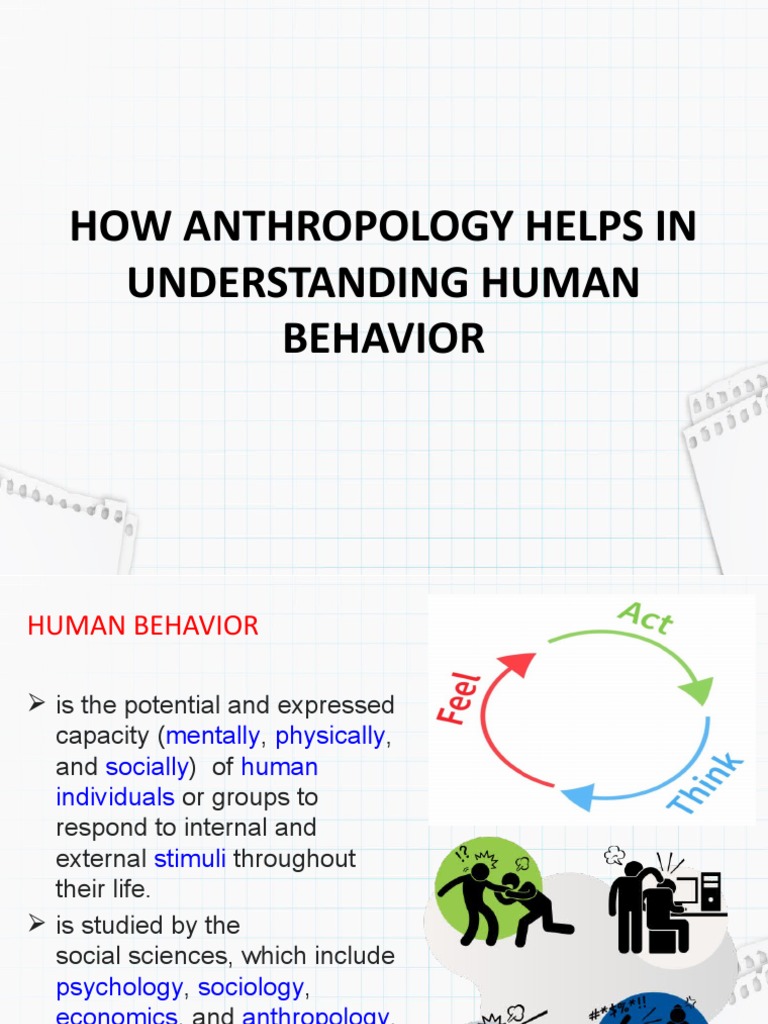Culture is an intricate tapestry woven from the threads of human experience, belief, and behavior. Anthropologists, the custodians of this complex phenomenon, understand that culture is not just a surface-level manifestation of habits and customs, but an elaborate framework within which human behavior is contextualized. This article delves into various definitions of culture as articulated by anthropologists, while exploring the implications of cultural relativism on human behavior.
The term culture encompasses a broad range of human activities and social constructs. Edward B. Tylor, often regarded as the father of anthropology, famously defined culture in the late 19th century as “that complex whole which includes knowledge, belief, art, morals, law, custom, and any other capabilities and habits acquired by man as a member of society.” This definition robustly encapsulates the multi-dimensional nature of culture, suggesting that it is not merely a set of practices but a repository of collective human experience.
Furthermore, these anthropological interpretations prompt an analytical lens through which one can assess the myriad ways that culture influences behavior. The realm of culture has profound implications for understanding everything from interpersonal relationships to societal structures. For instance, in some cultures, communal living is favored, while others place high premium on individualism. Such variations demand that anthropologists examine cultural phenomena through a relativistic framework, challenging ethnocentric perspectives that attempt to impose one culture’s norms upon another.
Cultural relativism, a concept born out of the same anthropological tradition, insists that one should understand cultural phenomena within their own cultural context. This perspective is particularly important because it pushes back against notions of superiority that can plague cross-cultural encounters. Anthropologists strive to analyze cultures on their own terms, a principle that fosters curiosity and deeper understanding.
One of the promises of embracing cultural relativism is its potential to illuminate and challenge implicit biases. Take, for example, the variance in gender roles across cultures. In some societies, women may assume roles that are traditionally male-dominated in others. A relativistic approach prompts questions: What cultural narratives inform these roles? How do historical contexts shape the gendered division of labor? By examining these questions without preconceived biases, one can gain insights that transcend simplistic binaries of good versus bad or right versus wrong.
Moreover, the study of culture involves an exploration of symbols and meanings that underlie social interactions. Anthropologists argue that every culture is replete with symbols that convey intricate social meanings. For example, the significance of greeting rituals can vary widely. In some cultures, a firm handshake signifies confidence and respect, while in others, it may be replaced by a bow or a simple nod, each embodying unique cultural narratives. Such practices are not trivial; rather, they are deeply embedded in the collective psyche of a community and can have significant implications on interpersonal relationships and social hierarchies.
Understanding these cultural symbols is crucial, as they serve not only as indicators of cultural identity but also as tools for negotiation within social frameworks. To navigate these symbols effectively, anthropologists deploy the method of participant observation. This immersive approach yields insights that quantitative methods may overlook, enabling researchers to grasp the lived experiences of individuals within their cultural milieu. This technique fosters curiosity by allowing one to see the world through the eyes of others, thereby promoting empathy and understanding.
Further, the anthropological investigation of culture often leads to an examination of rites, rituals, and traditions. These phenomena are essential to understanding the dynamism of culture; they illustrate how cultural practices evolve over time. Anthropologists like Victor Turner have articulated the concept of “communitas,” which captures the essence of shared experience during rituals that transcend societal norms. Rites of passage, for instance, create communal bonds, facilitating transitions in life stages and reinforcing cultural continuity. This dynamic aspect of culture highlights its adaptability and resilience, inviting one to reflect on the importance of tradition amidst modernity.
In dialogue with modernization, anthropologists contend that globalization poses new challenges and opportunities for cultural expressions. The blending of cultures, often referred to as “glocalization,” results in hybrid cultural forms that reflect an interplay between the local and the global. This phenomenon compels anthropologists to ask critical questions: How are traditional practices reinterpreted in a globalized world? What emerges from the convergence of diverse cultural influences? Such inquiries not only satisfy intellectual curiosity but also expand the framework within which one can understand contemporary human behavior.
Anthropologists emphasize that culture is not static; it is a living, breathing entity that adapts in response to changing social dynamics. In this light, examining cultural definitions and behaviors through a relativistic perspective enables a nuanced appreciation of the intricacies of human interaction. The shift from ethnocentric views to a more inclusive understanding of culture promises enriching insights that enhance one’s comprehension of human behavior.
In conclusion, the exploration of culture by anthropologists reveals a multifaceted realm that is foundational to understanding human behavior. Through definitions, cultural relativism, illustrative symbols, evolving rituals, and an awareness of globalization, one can approach the concept of culture with both curiosity and respect. This pursuit not only enriches academic discourse but also encourages a broader understanding of the intricate frameworks through which we navigate our social world.
